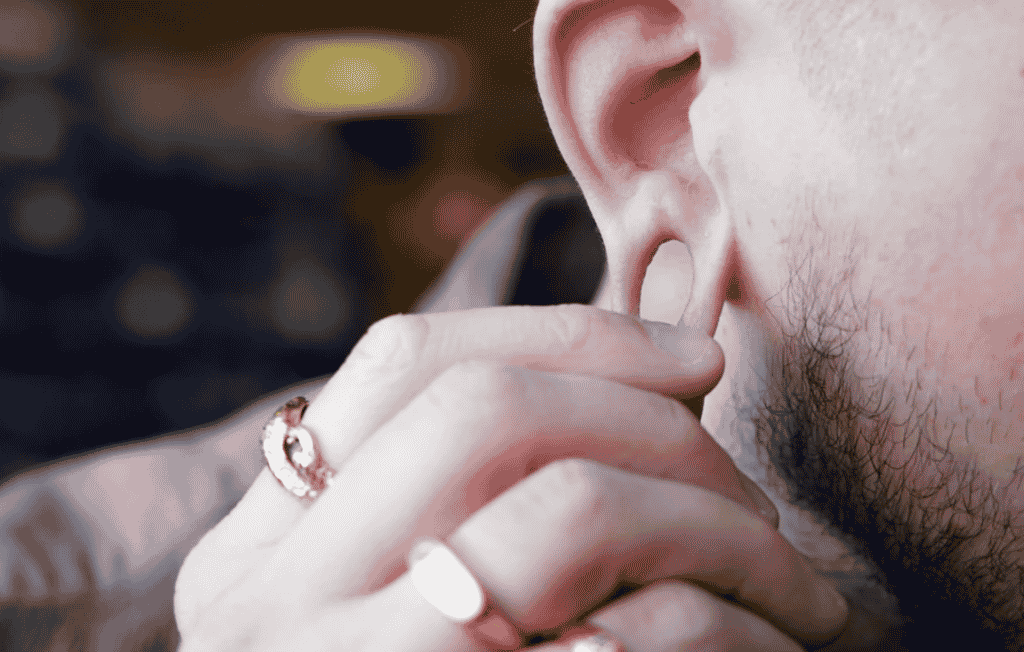As ear stretching gains prevalence in the world, it is important to also understand that the practice has its fair share of risks, including ear tears, blowouts, and overstretching. While dangers like blowouts are commonly discussed, overstretching often goes unnoticed by many in the ear stretching community.
Let’s look at the causes, symptoms, and side effects of overstretched ears.
What Are The Causes Of Overstretched Ears?
Piercing and ear stretching may be easy but maintaining their gauge size is often the most difficult. The following are some of the common causes of overstretched ears.
- Aging is probably the most natural cause of overstretching. According to research overstretching can be caused by a drop in the elastin and collagen levels as you age. The changes are most noticeable from age 40. Luckily, there are ways to slow down the aging effect. For instance, avoid excess sun exposure and wear brimmed hats outdoors.
- Stretching your ears too quickly might fail to give your ears enough time to recover from a stretch. This mistake will only increase your chances of injuries like blowouts and overstretching. Consult a professional piercer to avoid damaging your ears whenever you want to stretch. They can advise you on how long you should take based on your earlobe’s health condition.
Note: Recovery periods may be longer if you encounter complications such as infections, itching, and bleeding.
- Wearing weights and heavy earrings for long periods can also cause overstretched ears. Gravity causes the heavy ear pieces to pull downwards on the ears forcing them to elongate constantly.
- People tend to go to bed with their ear gauges, especially the smaller sizes. Unfortunately, the pressure caused by lying on the gauge will cause the earlobes to stretch gradually. You should also remove any earrings before going to bed. Earrings, especially hoop earrings, can cause injuries if they get caught on your sheets.
What Are The Symptoms Of Overstretched Ears?
While knowing the causes of overstretched ears is important, recognizing the symptoms offers an even better chance of getting ahead of or treating the problem. Below are the signs that your lobes might be overstretched.
- Have you noticed that your earrings are starting to feel smaller in your lobes? If you haven’t gone a size up and your current jewelry is starting to feel loose, there is a high chance your ears are overstretching. You can prevent this by ensuring you massage your earlobes regularly to keep them healthy and keep blood flowing to this area, Using natural oils like jojoba oil instead of oil-based lubricants like petroleum jelly.
- Thinning earlobes are also a clear sign that may indicate overstretched ears. Once you are in this situation, it is hard to rejuvenate your lobes using home remedies. You will have to consult a professional on the options you have to rejuvenate your earlobes.
While ears may fail to shrink because of several reasons, overstretching is among the top reasons. To ensure your lobes can shrink, ensure you practice ear care and safety when stretching.
What Are The Side Effects Of Having Overstretched Ears?
If you are suffering from overstretched earlobes, it is essential to note their side effects and treatment options.
- According to experts, overstretched ears are more prone to tearing than normally stretched ears. In case of tearing, the lobe needs to be reshaped and stitched back together by a surgeon.
- The change is permanent once the earlobe is overstretched. Any home remedy will have no effect because the damage is in the lobe tissue. This means that you will have to undergo reconstructive surgery.
- There might be less blood flow to your earlobes if they are overstretched. Massage your earlobes and take hot showers to increase the blood flow.
We recommend that you talk to a doctor if there is no improvement or if you notice a change in color in your earlobes.
Conclusion
Overstretching is easily preventable when people follow the advice of professional piercers. Please remember that allowing your lobes to recover fully is the best chance you have at avoiding this problem. Give your lobes time to heal and watch out for infections. To reduce the chances of infection, clean your jewelry and piercing regularly.
Avoid weights altogether to prevent your ears from overstretching. However, if you have to wear them, use them for limited periods. For instance, wear them to a one-day event and remove them before you go to bed to avoid damaging your earlobes.
If you want to do ear stretching safely, consider checking out ear stretching kits which contain everything you’ll need.
